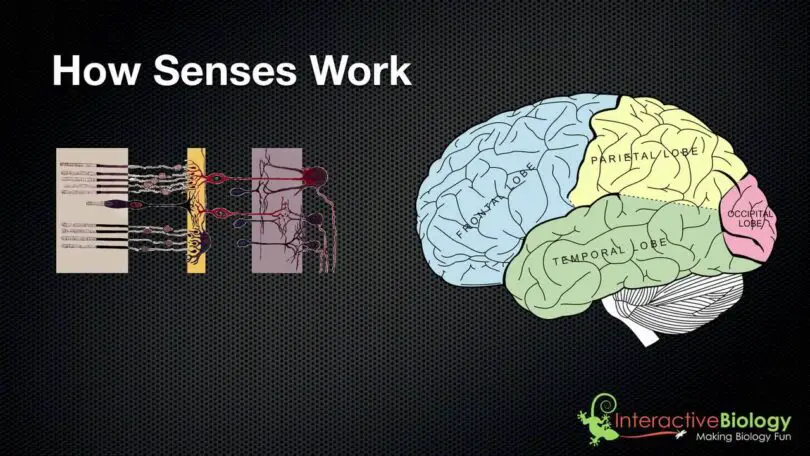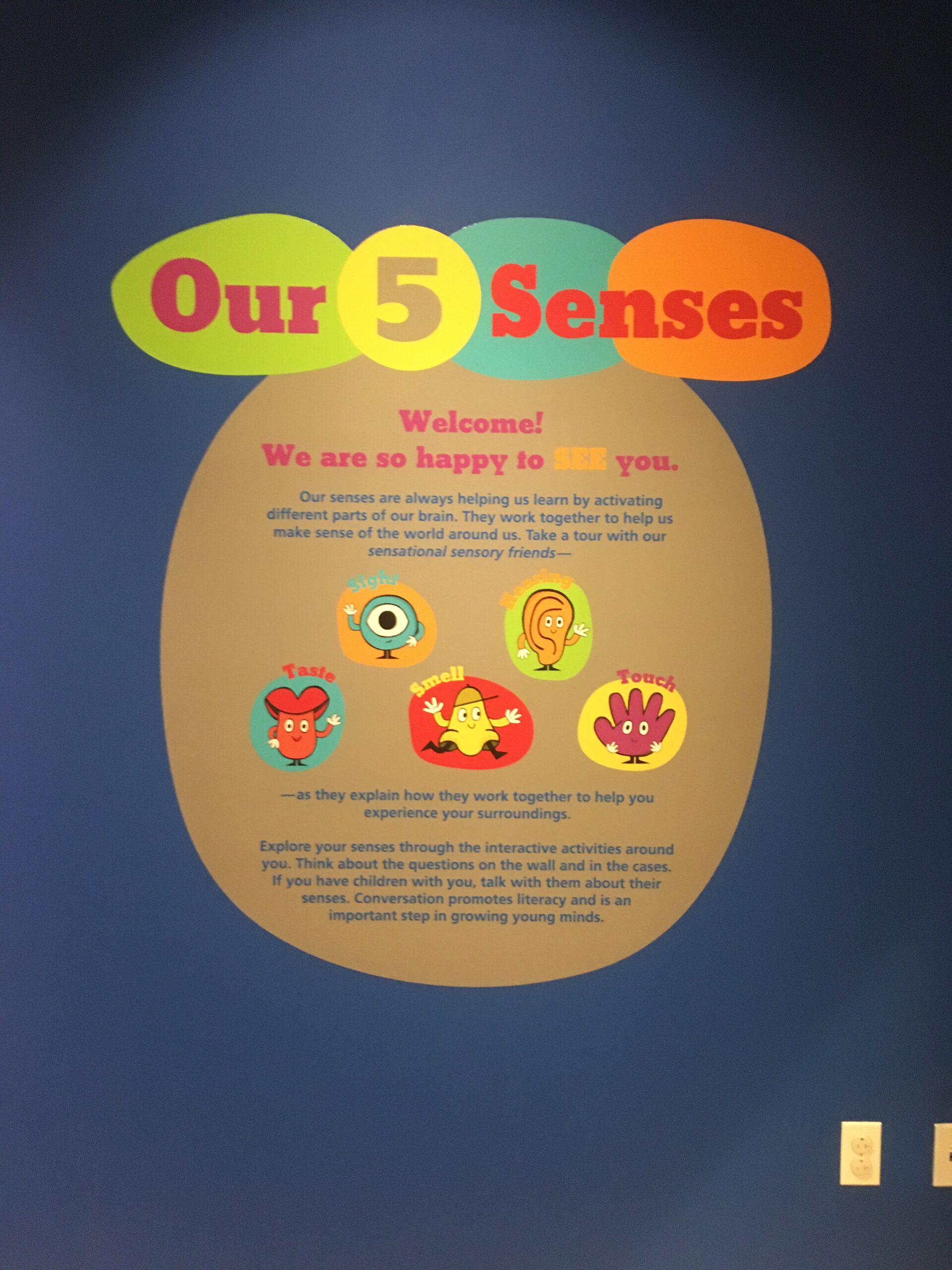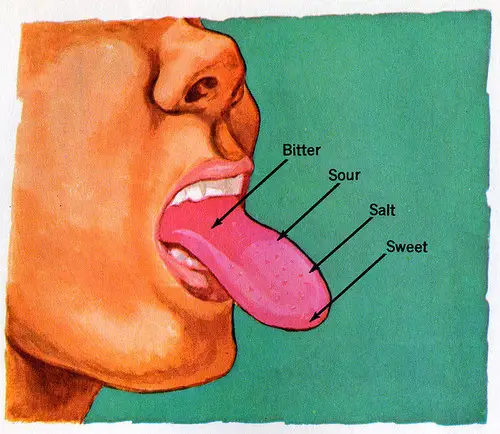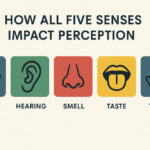Our senses work by receiving information through sensory organs and sending signals to the brain for interpretation. The brain then processes these signals to give us a perception of the world around us.
Our senses play a crucial role in how we understand and interact with our environment. They enable us to see, hear, touch, taste, and smell, providing us with valuable information that helps us navigate and make sense of the world.
Each sense has its own specialized sensory organs and neural pathways, allowing us to perceive different stimuli. Understanding how our senses work can deepen our appreciation for the complexity of human perception and the wonders of the natural world.
Vision: Illuminating The World Around Us
Our senses play a crucial role in how we perceive the world around us. Vision, particularly, allows us to see and understand our surroundings. The structure of the eye is responsible for this amazing process. Light, a vital component of visual perception, enters the eye through the cornea and passes through the pupil.
The lens then focuses the light onto the retina, where it is converted into electrical signals. These signals are then transmitted to the brain via the optic nerve, where they are interpreted as images. Understanding how our senses work, and specifically how vision functions, helps us appreciate the complexity and beauty of the world we live in.
Hearing: Harmonizing Sound Waves
Our senses play a crucial role in perceiving the world around us. When it comes to hearing, sound waves harmonize, creating a symphony of auditory sensation. The ear, with its intricate anatomy, is responsible for the transmission and perception of sound.
From the outer ear to the inner ear, a series of structures work together to capture and amplify sound waves. The brain then takes over, processing the auditory signals and transforming them into meaningful information. This complex process allows us to appreciate music, engage in conversations, and be aware of our surroundings.
Understanding how our senses work, particularly in hearing, helps us appreciate the marvel of our sensory systems. So next time you listen to your favorite tune, take a moment to marvel at the fascinating journey of sound through your ears.
Taste And Smell: Savoring Flavors And Aromas
The senses of taste and smell play a crucial role in our ability to savor flavors and aromas. The physiology of taste buds and olfactory receptors determines how we perceive these sensations. Taste perception involves the interplay between five basic tastes, while our sense of smell acts as a key contributor to our overall tasting experience.
By exploring the intricate connections between taste and smell, we gain a deeper understanding of how the body processes and interprets sensory information. These senses work in harmony to create the complex and nuanced experience of savoring food and drink.
Understanding the mechanics behind taste and smell allows us to appreciate the intricate ways in which our bodies perceive the world around us.
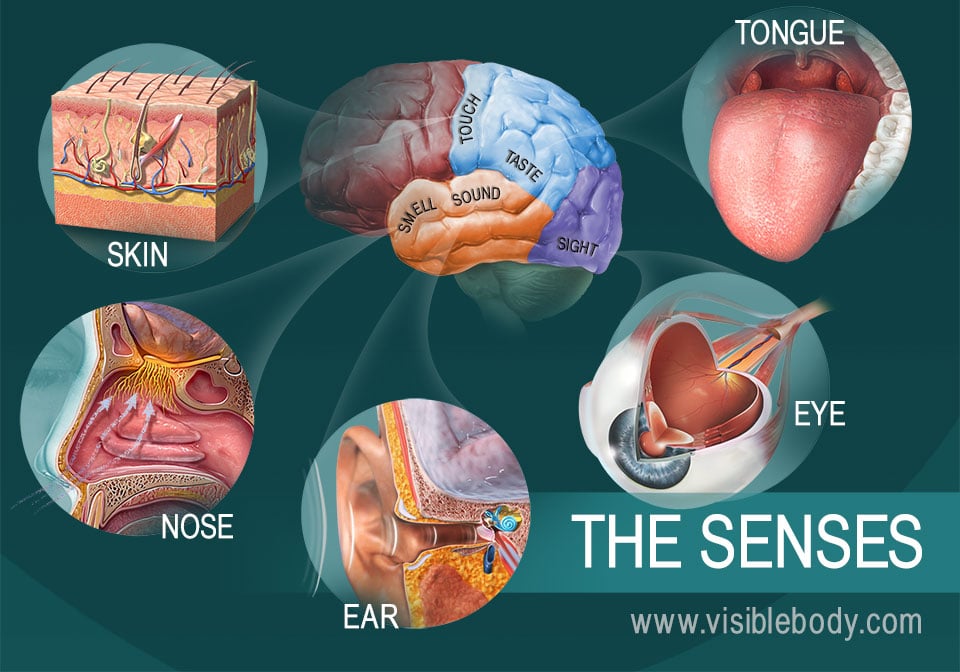
Credit: www.visiblebody.com
Touch: Sensing The World Through Our Skin
Our senses allow us to perceive and interact with the world around us. One crucial sense we often take for granted is touch. Our skin is covered in various touch receptors that enable us to feel sensations. These receptors can be categorized into different types, each specialized in detecting specific stimuli.
Touch plays a vital role in our daily lives, from simple actions like feeling the texture of an object to more complex interactions like hugging a loved one. Additionally, touch is closely tied to our emotions. Studies have shown that certain touches can trigger the release of oxytocin, a hormone that promotes feelings of trust, bonding, and love.
Understanding how our sense of touch works can deepen our appreciation for the intricate way our bodies interact with the world.
The Sixth Sense: Proprioception And Body Awareness
Proprioception is our sixth sense, allowing us to have body awareness and a sense of where we are in space. It plays a crucial role in our ability to move smoothly and maintain balance. This sense relies on receptors located in our muscles, joints, and tendons, which send signals to our brain about the position and movement of our body parts.
Understanding proprioception is important because it helps us comprehend how our bodies interact with the world around us. It also assists in activities such as walking, catching a ball, or even typing on a keyboard. However, disorders of proprioception can affect our coordination and balance, requiring specialized therapies to improve these skills.
By nurturing our proprioceptive system, we can have a better understanding of our bodies and how they move, ultimately enhancing our overall physical performance and well-being.
Frequently Asked Questions Of How Do Our Senses Work
How Do Body Senses Work?
Body senses work by receiving signals from sensory receptors, which send information to the brain for processing.
How Do Each Of The 5 Senses Work?
Here is the short, accurate and SEO friendly answer for the FAQ: How do each of the 5 senses work? The five senses, including sight, hearing, taste, smell, and touch, allow us to perceive and interact with the world around us.
What Controls Your 5 Senses?
The brain controls your 5 senses, allowing you to perceive and understand the world around you.
How Do Senses Work Biologically?
Senses work by receiving signals from the environment and transmitting them to the brain for interpretation.
Conclusion
Understanding how our senses work is a fascinating exploration into the intricacies of the human body. Each sense plays a unique role in helping us navigate and interpret the world around us. From the complex process of vision, where light is converted into visual information, to the sensory receptors in our skin that allow us to feel and perceive touch, our senses are constantly at work, providing us with valuable information.
The sense of taste allows us to experience the flavors and textures of food, while our sense of smell can trigger vivid memories and emotions. And finally, our sense of hearing enables us to communicate, enjoy music, and appreciate the sounds of nature.
By understanding how our senses function, we can better appreciate the richness of our everyday experiences and gain a deeper appreciation for the incredible complexity of the human body.

